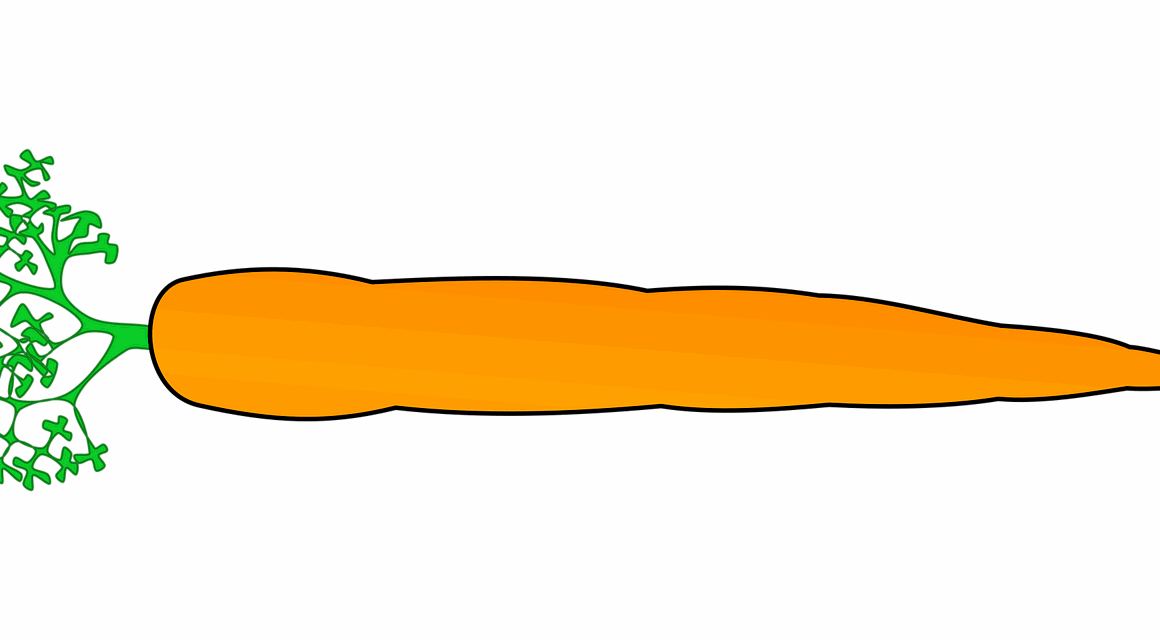Vitamin A in Veterinary Medicine: Uses and Recommendations
Vitamin A holds a crucial place in veterinary medicine, especially regarding the health of dogs. This vitamin is essential for numerous physiological processes, including vision, immune function, and cellular communication. Deficiencies in Vitamin A can lead to severe health issues such as night blindness and impaired immune response. Additionally, the vitamin plays a vital role in maintaining healthy skin and coat quality. It supports the development of epithelial tissues, which are vital for protection against environmental pathogens. Veterinarians often recommend Vitamin A supplements to dogs with specific dietary deficiencies or health concerns. For instance, certain breeds may have heightened risks for Vitamin A deficiency due to genetics. A balanced diet is crucial for dogs, and awareness of Vitamin A’s importance becomes essential in formulating proper canine nutrition. It is vital to consult a veterinarian for advice on the appropriate amounts of Vitamin A for specific dog breeds and life stages. They can guide pet owners in deciding between natural dietary sources and supplementation options for optimal canine health. Ultimately, understanding Vitamin A’s importance ensures the overall well-being of your furry companions.
Vitamin A comes in two primary forms, essential for dogs: preformed vitamin A (retinol) and provitamin A (carotenoids). Preformed vitamin A originates from animal-based food sources, while provitamin A primarily comes from plant-based foods. For dogs, retinol is readily usable, requiring no conversion for body utilization. Conversely, carotenoids must undergo transformation into active retinol within the body and may not be fully effective in all breeds. Dietary sources rich in Vitamin A include liver, fish oils, and egg yolks, which can significantly enhance a dog’s vitamin intake. Fruits and vegetables like carrots and sweet potatoes supply beneficial carotenoids. Balancing these sources ensures adequate Vitamin A levels for canines. Veterinary recommendations often specify age-related adjustments in dietary Vitamin A, considering the unique nutritional requirements of puppies, adults, and senior dogs. An overabundance of Vitamin A can also lead to toxicities, making it essential for pet owners to be aware of the recommended dosages and food sources. A veterinarian can assess a dog’s overall diet to ensure they receive the right amount of this crucial vitamin without risking health complications.
Signs of Vitamin A Deficiency
A Vitamin A deficiency in dogs manifests through various signs, indicating the need for immediate dietary adjustments. One of the most noticeable signs is impaired vision, particularly in low-light conditions resulting from retina deterioration. Additionally, dry and flaky skin may appear due to a lack of epithelial tissue production, which can severely contribute to skin health problems. Weight loss and lethargy can also occur as the immune system weakens, making dogs more susceptible to infections. Moreover, vitamin A deficiency can compromise reproductive health in both male and female dogs, potentially leading to fertility issues. In puppies, inadequate Vitamin A levels can hinder proper growth and development, resulting in lifelong health challenges. Ensuring dogs receive an adequate vitamin intake is vital, particularly during their growth phases, to prevent significant repercussions. Pet owners should observe these symptoms attentively and seek veterinary evaluation if they suspect deficiency. Diagnostic evaluations may include blood tests to measure vitamin levels and ensure appropriate treatment. A vet will recommend dietary changes or supplements tailored to each dog’s unique needs, optimizing their health outcomes.
Veterinarians often recommend various supplementation methods to ensure dogs maintain adequate Vitamin A levels. Supplements come in various forms, such as capsules, liquids, and chewables, allowing pet owners flexibility in administering the vitamin. However, it is essential to follow veterinarian guidelines concerning dosage and frequency to prevent toxicity. Some dogs may require higher dosages, mainly if they have health concerns leading to increased vitamin needs. Moreover, certain commercially prepared dog foods are fortified with vitamins, including Vitamin A, simplifying dietary management for pet owners. Providing a balanced diet with high-quality ingredients can fulfill most dogs’ nutritional requirements, making supplementation unnecessary for healthy pets. Conversely, dogs with special needs may benefit significantly from targeted supplementation if advised by a veterinarian. Tailoring supplement intake to meet individual canine health goals maximizes the benefits of Vitamin A. Furthermore, regular veterinary check-ups help monitor vitamin levels, ensuring that dogs receive the optimal amount as their health status evolves. Staying educated about the nutritional needs of dogs aids in preventing deficiencies and maintaining overall wellness.
Vitamin A Dosage Recommendations
Determining the appropriate dosage of Vitamin A for dogs requires careful consideration of age, breed, and health status. For puppies, the recommended daily allowance is lower, typically between 2,000 to 5,000 IU (International Units) per kilogram of body weight. Adult dogs generally require a higher dosage, ranging from 5,000 to 10,000 IU per kilogram. However, factors such as physical activity, reproductive status, and overall health can influence these recommendations. Senior dogs may have altered nutrient absorption, making it essential to adjust Vitamin A intake accordingly. Before introducing any supplements, pet owners should consult with a veterinarian who can provide tailored dietary advice. Additionally, incorporating Vitamin A-rich foods like liver, fish, and carrots into regular meals can help meet these requirements naturally. It is crucial to gradually adjust Vitamin A intake to prevent sudden changes that could lead to toxicity. Excessive Vitamin A can have harmful side effects, including bone deformities and organ dysfunction. Maintaining a well-structured feeding plan allows for adequate vitamin absorption and optimal health outcomes for canines.
In the case of Vitamin A toxicity, immediate veterinary attention is critical for affected dogs. Symptoms often include loss of appetite, vomiting, and lethargy. In severe cases, neurological issues such as tremors or seizures may occur, indicating a significant overdose. Veterinary assessment typically involves evaluating the dog’s dietary history and systemic health status. Blood tests may be conducted to measure vitamin levels and across multiple systems, ensuring accurate diagnosis. Treatment often involves immediate intervention, potentially including intravenous fluids and dietary adjustments. Pet owners should always investigate potential sources of Vitamin A overdose, especially if using supplements alongside fortified foods. Avoiding excessive supplementation and sticking to veterinarian recommendations can circumvent these dangers. However, in some cases, more severe interventions, such as hospitalization, may be necessary to avert life-threatening complications. Monitoring your dog’s vitamin intake and maintaining open communication with veterinarians can ultimately minimize risks associated with Vitamin A consumption. This proactive approach fosters a healthier, happier canine companionship while addressing any underlying medical conditions swiftly to promote resilience and well-being.
Conclusion: Importance of Vitamin A
In conclusion, Vitamin A plays a crucial role in the overall health and well-being of dogs, necessitating proper attention to dietary intake. Regular veterinary check-ups and monitoring ensure that dogs receive sufficient levels of this essential vitamin, promoting healthy growth, vision, and immune function. Understanding the signs of deficiency empowers pet owners with knowledge to identify potential issues promptly and take appropriate action to remedy them. Supplements can provide an excellent source of Vitamin A, but pet owners must follow veterinarian guidance to ensure safe and effective use. A balanced diet that incorporates Vitamin A-rich foods can enhance the dog’s vitality while maintaining their overall well-being. Awareness of dosage recommendations is vital to avoid both under- and over-supplementation, as either extremity poses health risks. Engaging in proactive health management through regular consultations with veterinary professionals is crucial to guarding against deficiencies and ensuring adequate nutrition. By prioritizing Vitamin A intake in canine diets, pet owners will foster lifelong health and vitality for their furry companions. Ultimately, a well-informed approach to canine nutrition supports the entire health framework, ensuring dogs lead fulfilling and healthy lives.
Pet owners are encouraged to stay open to ongoing research surrounding canine nutrition, especially regarding essential vitamins like Vitamin A. New studies may continually enlighten best practices for supplementation, dietary integration, and monitoring needs for specific breeds or age groups. By understanding Vitamin A’s significance, one can create a more informed and healthier environment for pet dogs. As veterinary science evolves, staying updated with the most current findings can help prevent significant health issues related to nutritional deficiencies. Furthermore, active participation in veterinary nutrition workshops or reading reliable veterinary publications can enhance knowledge about vital vitamins and respective dosages. Empowered with knowledge, pet owners can make informed choices that align with their dog’s unique health status and lifestyle. Collectively, this proactive approach nurtures a more holistic view of pet care, encouraging attentive observation of each dog’s specific needs. In doing so, pet owners pave the way for robust health and vibrant longevity for their beloved canine companions, ultimately enriching their quality of life. Practicing responsible pet ownership encompasses not only routine veterinary visits but also continuous learning about the nutritional requirements to support their overall well-being.


